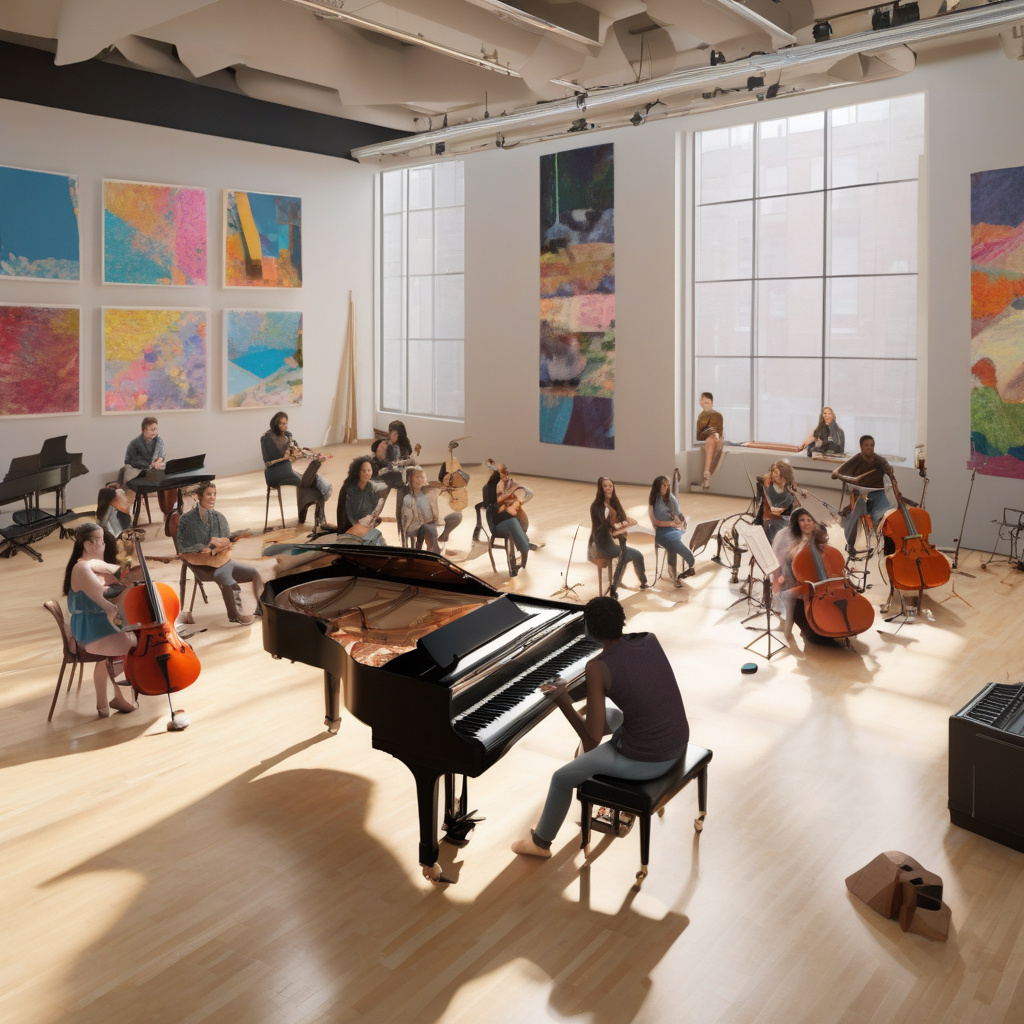OpenAI’s Work With The Juilliard School Has A Catch
In the realm of digital marketing and e-commerce, the utilization of artificial intelligence (AI) has become increasingly prevalent. From personalized advertisements to tailored product recommendations, AI technology has revolutionized the way businesses engage with consumers. One area where AI is making significant strides is in the realm of audio production, particularly in the creation of AI-generated music for videos. This innovation not only provides advertisers with a new avenue for cost savings but also opens up a world of creative possibilities. However, recent reports of OpenAI’s collaboration with The Juilliard School of Music have raised some eyebrows in the industry.
OpenAI, a leading AI research laboratory, has been at the forefront of developing cutting-edge AI technologies. Their work in the field of music generation has caught the attention of advertisers looking to enhance their video content with high-quality, royalty-free music. By leveraging AI algorithms, advertisers can now access a vast library of AI-generated music that can be seamlessly integrated into their video campaigns. This not only streamlines the production process but also reduces costs associated with licensing music from traditional sources.
The reported collaboration between OpenAI and The Juilliard School, a prestigious institution known for its excellence in music education, initially seemed like a match made in heaven. The partnership promised to combine the technological prowess of OpenAI with the musical expertise of Juilliard’s faculty and students. The prospect of AI-generated music created with the guidance of world-class musicians was an exciting one for many in the industry.
However, there is a catch. While the idea of AI-generated music crafted in collaboration with Juilliard’s music professionals sounds appealing, there are concerns about the implications of such a partnership. Critics worry that by involving human musicians in the creation of AI-generated music, the authenticity and originality of the music may be compromised. The essence of AI-generated music lies in its ability to mimic various styles and genres without direct human intervention. By introducing human input into the equation, there is a risk that the music produced may lack the uniqueness that sets AI-generated music apart.
Moreover, there are ethical considerations to take into account. As AI technology continues to advance, questions surrounding intellectual property rights and artistic ownership have become increasingly complex. The integration of human creativity into AI-generated music blurs the lines between man and machine, raising important questions about who ultimately owns the music created through such collaborations.
Despite these concerns, the partnership between OpenAI and The Juilliard School represents a fascinating intersection of technology and creativity. By marrying the precision of AI algorithms with the artistry of human musicians, the collaboration has the potential to push the boundaries of what is possible in the realm of music production. While there may be challenges to navigate along the way, the opportunity to explore new frontiers in audio production is an exciting prospect for advertisers and content creators alike.
As the partnership between OpenAI and The Juilliard School continues to unfold, it will be interesting to see how the worlds of AI technology and music converge. By addressing the challenges and complexities that arise from such collaborations, advertisers can harness the power of AI-generated music to enhance their video content while respecting the integrity of artistic expression.
In conclusion, the reported work of OpenAI with The Juilliard School of Music offers a glimpse into the future of AI-generated music production. While there may be a catch in terms of maintaining authenticity and addressing ethical concerns, the partnership signals a new era of innovation and creativity in the digital marketing landscape.
AI, OpenAI, Juilliard, music, video production
